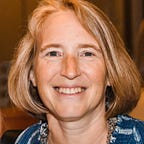Finding Your Time for Fun
You need to eat and sleep. You might need to work or go to school or both. You have obligations or interests that take time on a regular basis. Hopefully, you have some flexible time when you choose your activity.
You need time to have fun as Catherine Price discussed in The Power of Fun. The recommendation is that you do a fun audit and, more importantly, do things that are fun for you. Laurie Santos, Professor of Psychology at Yale University, tested it out and affirms the need for intentional use of time for things that make us happy and fulfilled as described in this Huff Post piece: https://www.huffingtonpost.co.uk/entry/the-power-of-fun-catherine-price_uk_613f653ae4b00ff836efe778
Spending time as part of a community is much the same — it is necessary for your well-being. And it takes time. So how do you find the time for community (and fun)? You need to know how you spend your time so that you can decide if you are happy with the balance or if you want to (and can) change it. Looking at how you spend your time can also help you organize your time to be more productive and to coordinate with others.
Balancing
As you consider how to use your time and how to spend time with your communities, remember that you need to balance your private time and your public or “with others” time which is a very personal question. As Donald Winnicott said, “It is a joy to be hidden but disaster not to be found.”
When you identify and participate in communities, you are “found” by the other community members. However, you probably want some part(s) of you to be private and yours alone (hidden). In other words, you need some personal time as well.
The time balance must include interpersonal interactions, social structure, and time alone as well as specifics activities and interests. You will need the private you and the public you, time for a core of friends, and for a collection of individual relationships. Your friends might be at school with you or at work with you; they might be participants in the same groups. That circle of friends is crucial in your life and must be in addition to being part of a defined group or community with structure. The amount of time you want to spend with others and pursuing your interests is a personal decision that will affect how and how much you engage with each of your communities.
Personal time, social time, and community time can emerge from required activities such as working, going to school, and eating, or you might need to be more intentional with whatever time is remaining. How much time do you have available each week after your required activities (including sleep)? We can call that Choice Time. If your allocation of time across activities is a balance you like, your Choice Time is sufficient. If you are looking to change how you spend time and specifically to increase community activity, you should look for opportunities to increase Choice Time.
Time for Community
Now, you can consider how much time you want for your community activities or something else and whether you might want to change it. For each pursuit that you choose, ask yourself these questions:
- How much time do I spend on it now?
- Do I want to change (increase or decrease) the commitment to it? By how much?
- Is there Choice Time available for this?
For a new community or pursuit, just think about how much time you plan to devote to it. Your Time Audit might follow this path:
You might have to make some tough decisions about how to use your time, but it will be worth it. You will feel more in control and be a better participant (and friend!) if you are intentional about allocating time to each area of your life. When you are spending time on an activity or with a friend, you can be fully present knowing that you have committed to spending your time that way. Your communities will thank you!
The bad news is time flies. The good news is you’re the pilot. — Michael Altshuler
